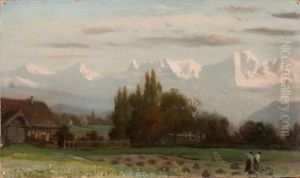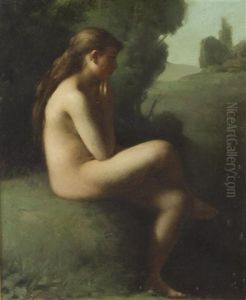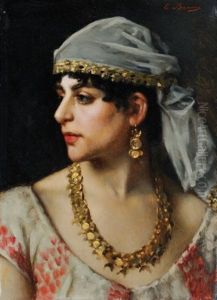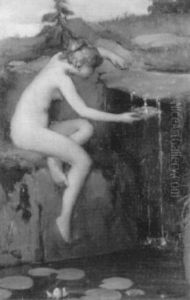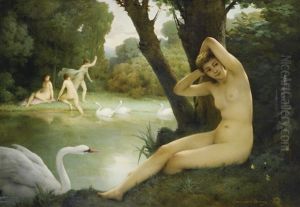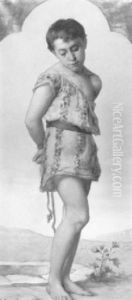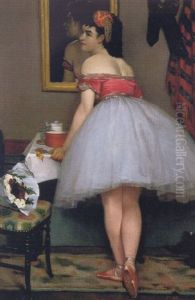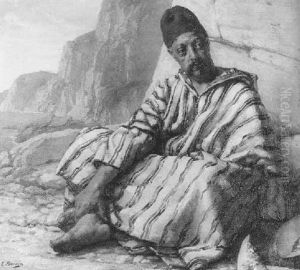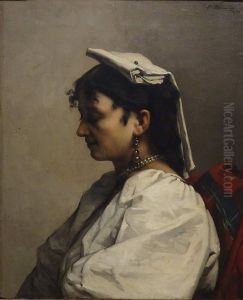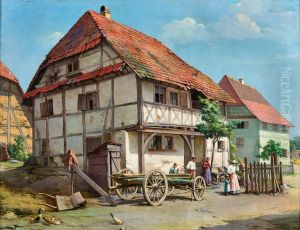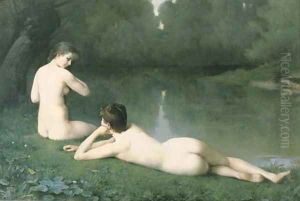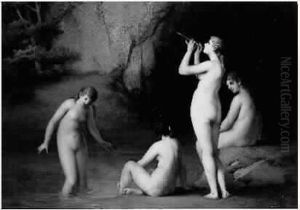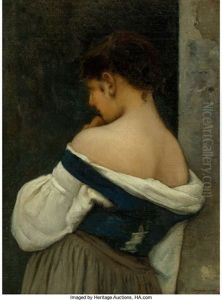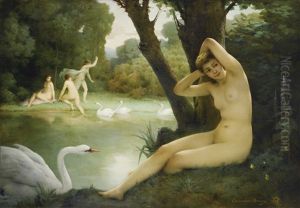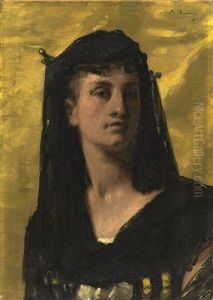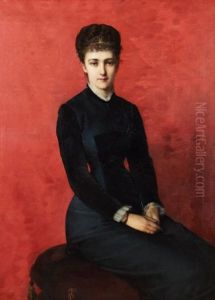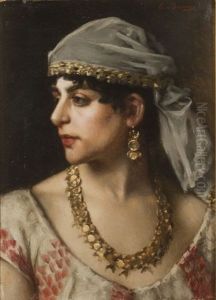Emmanuel Benner Paintings
Emmanuel Benner was a French painter and engraver born in Mulhouse, France, in 1836. He was part of a family steeped in artistic tradition; his father, Jean Benner-Fries, and his brother, Jean Benner, were also notable artists. This environment nurtured his talents from a very young age, guiding him towards an artistic career that would eventually earn him a place in art history. Emmanuel's early education and foundational training in the arts were deeply influenced by his familial surroundings, setting the stage for his future achievements.
Emmanuel's artistic journey was marked by his dedication to exploring various subjects, though he is perhaps best remembered for his captivating landscapes and poignant biblical scenes. His works often reflected a profound sensitivity to nature and a skillful use of light, capturing the ethereal beauty of landscapes with a romantic flair that resonated with the artistic trends of his time. Despite the popularity of academic painting in France during the 19th century, Emmanuel managed to carve out a distinct niche for himself by blending traditional techniques with his own unique vision.
In addition to landscapes, Benner's interest in biblical themes was evident in several of his works, where he depicted religious narratives with a deeply human touch, focusing on the emotions and inner turmoil of his subjects. This ability to convey profound human experiences through biblical stories set him apart from many of his contemporaries and added depth to his portfolio.
Throughout his career, Emmanuel Benner exhibited his works at various salons and exhibitions, gradually gaining recognition and acclaim. His dedication to his craft and his ability to evoke emotion through his art earned him a respected place among French artists of the 19th century. Despite facing the challenges common to artists of his time, including the shifting tastes of the public and the evolving landscape of the art world, Benner remained true to his vision, leaving behind a body of work that continues to be appreciated for its beauty and emotional depth.
Emmanuel Benner's contributions to art were not limited to his own creations. He also played a role in inspiring and influencing the next generation of artists, passing on the values of observation, emotion, and a deep reverence for nature that characterized his work. He passed away in 1896, but his legacy endures, celebrated in galleries and collections that continue to house his works, allowing new audiences to discover and appreciate his artistic achievements.







